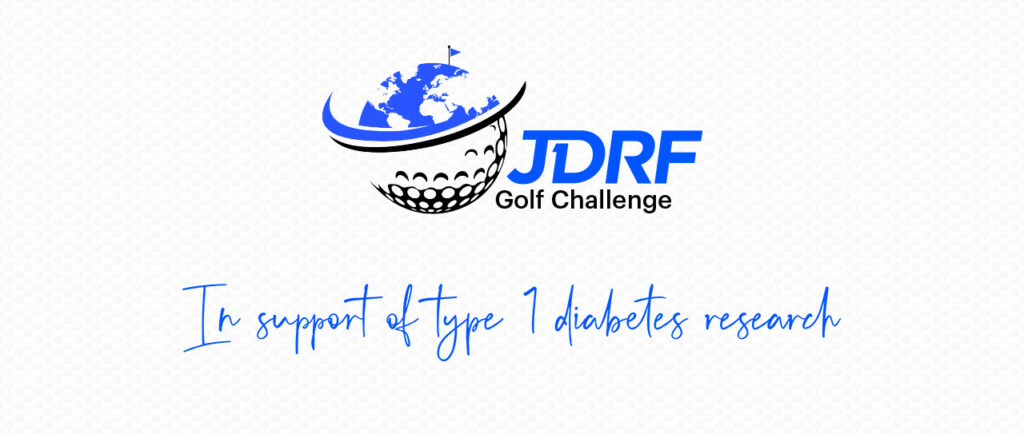
The name Garfinkle is synonymous with JDRF Canada.
Over 50 years ago, in 1971 and 1973 respectively, Krayna Golfman and Mitch Garfinkle saw their sons, David and Jimmy diagnosed with type 1 diabetes (T1D). They joined forces with other families affected by the disease to begin their lifelong mission of finding cures for T1D while also improving the lives of those living with it. It was these families who founded what was to become JDRF Canada.
The Garfinkle family’s commitment to supporting the most promising T1D research has never wavered, and their resolve was further strengthened when their grandson Alex was diagnosed with T1D. JDRF Canada’s foundations lay in the grassroots organization inspired by the Garfinkle family.
The JDRF Golf Challenge is born
The JDRF Golf Challenge has its roots in the JDRF Golf Marathon, first started forty years ago by David Garfinkle and his friend Steven Mitchell in the early 80s. They revived the event in 2022, and from that came this year’s Golf Challenge.
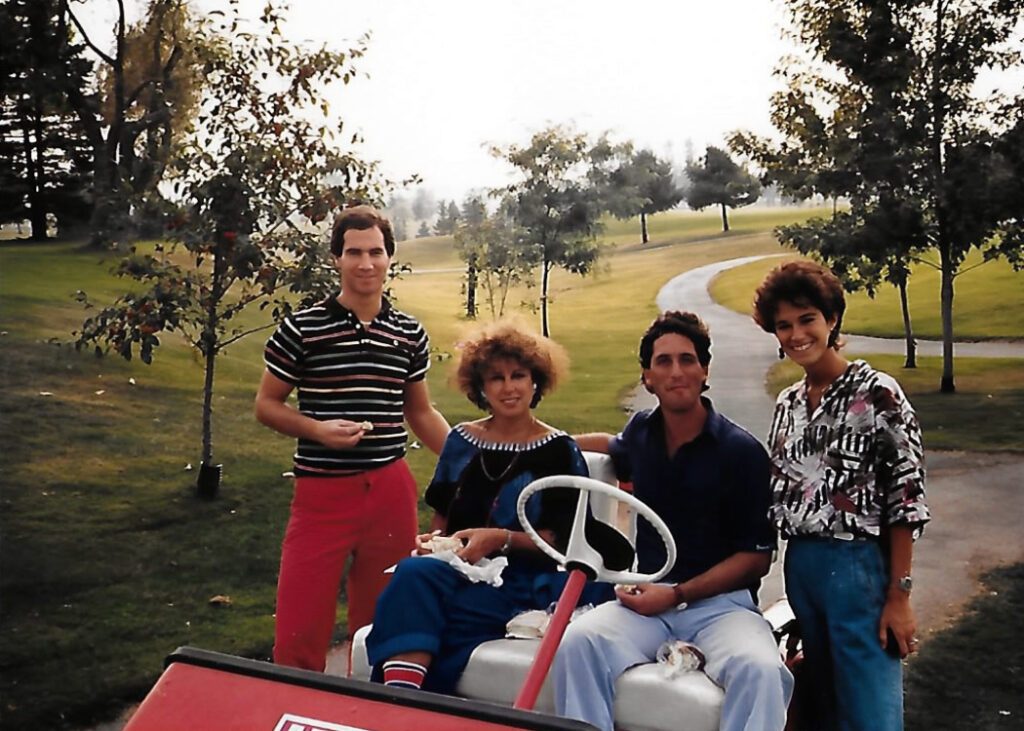
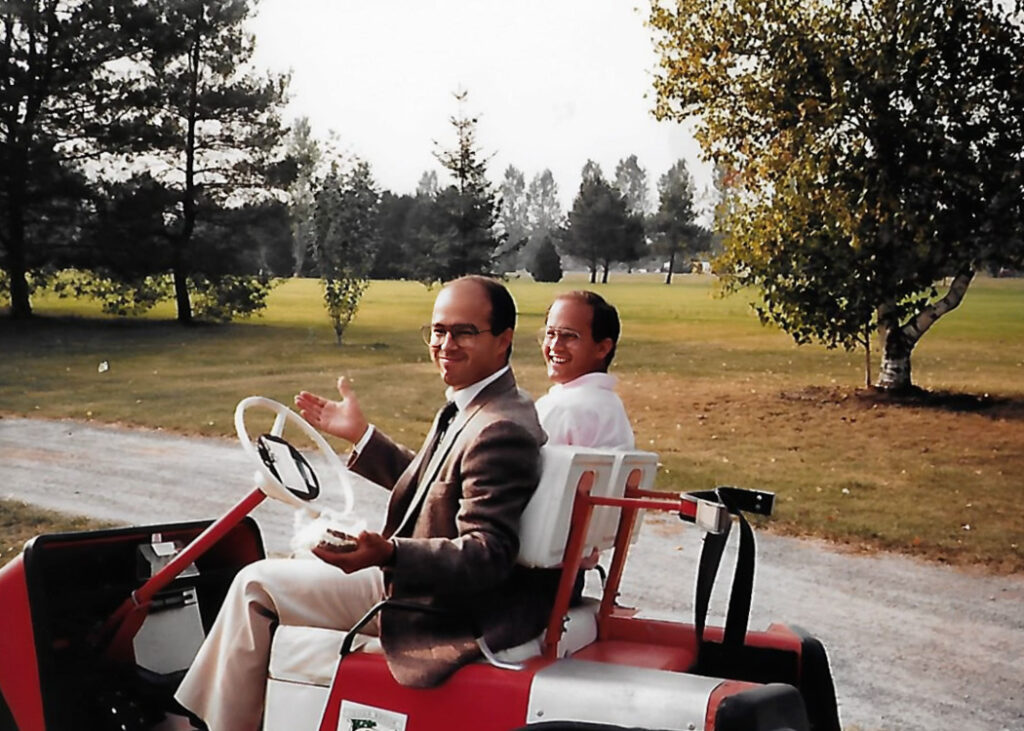
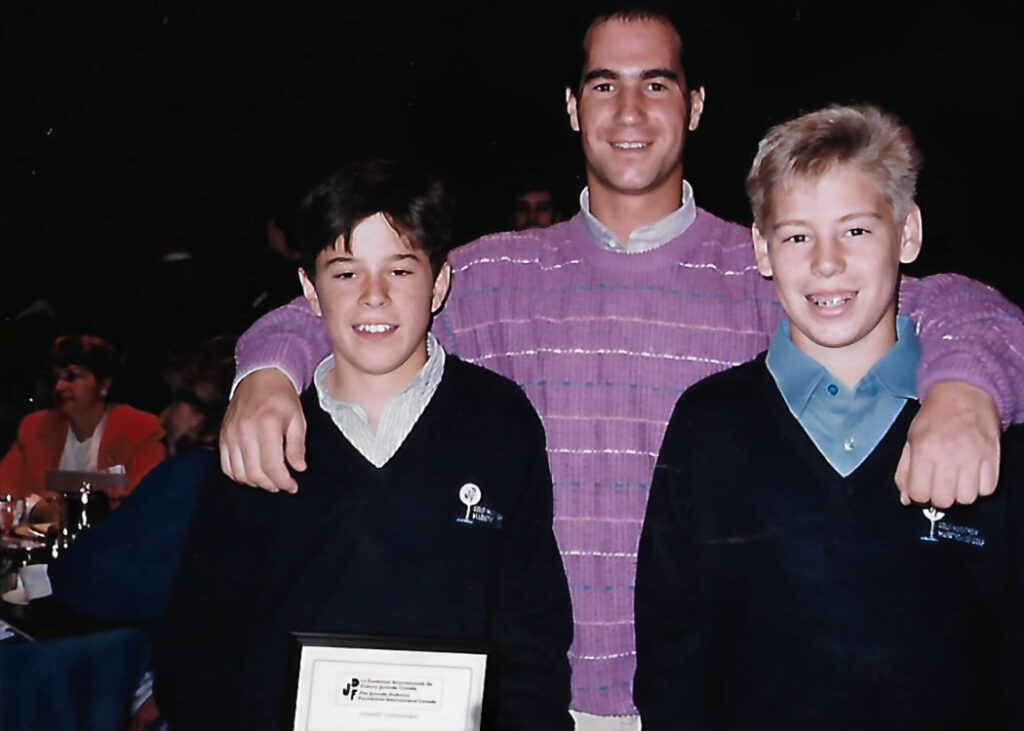
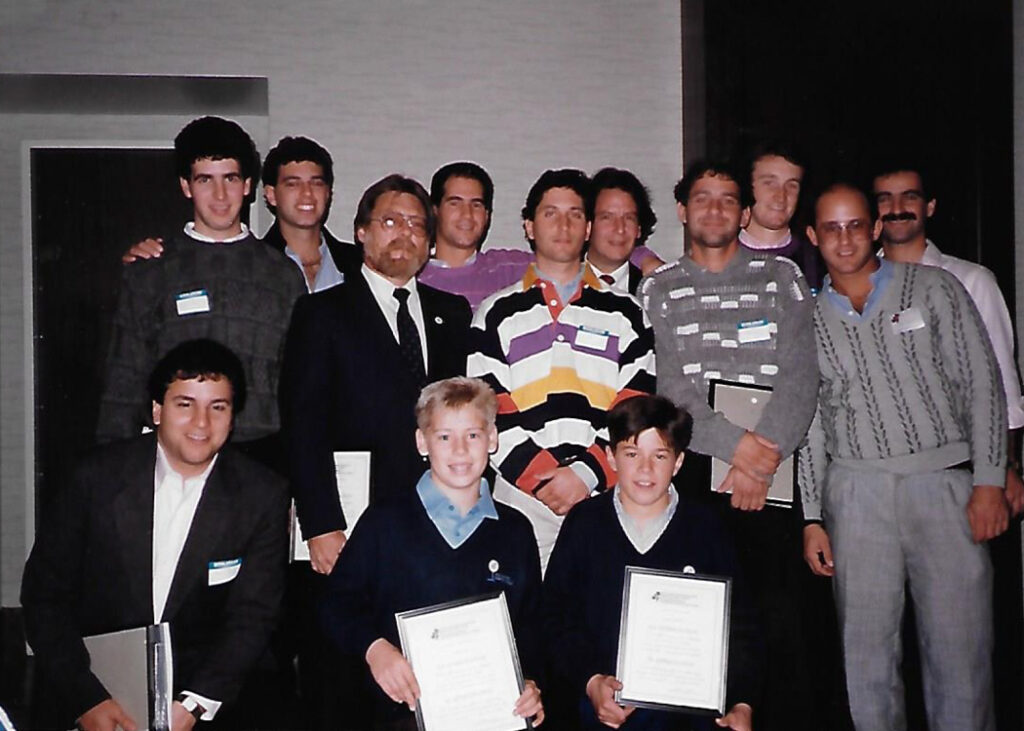
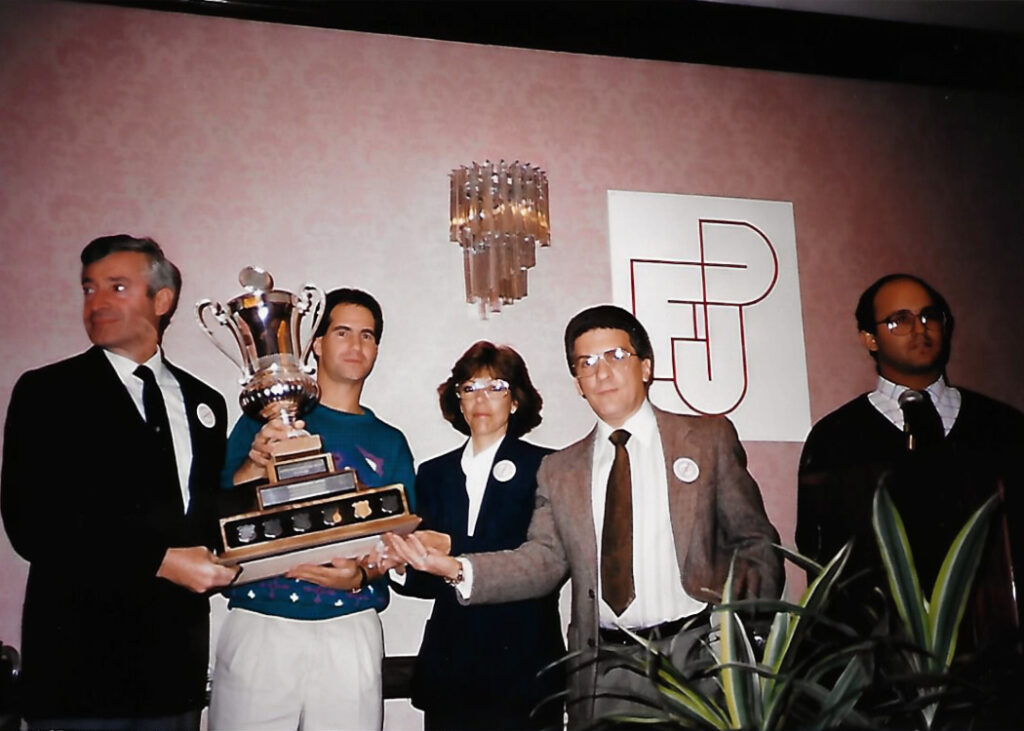
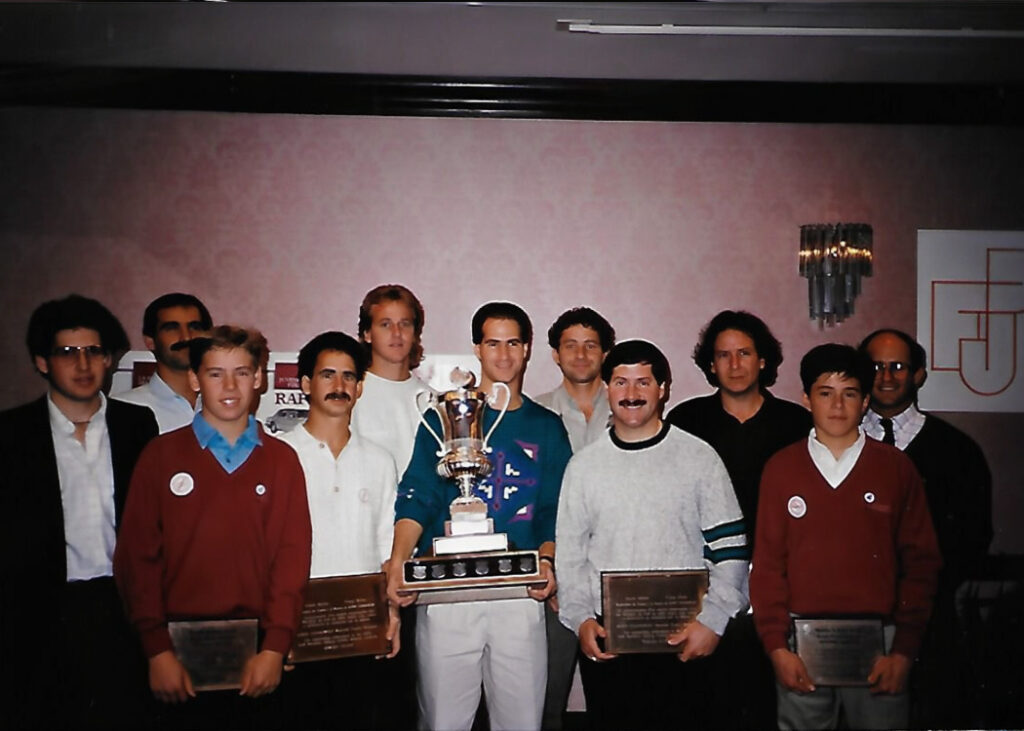
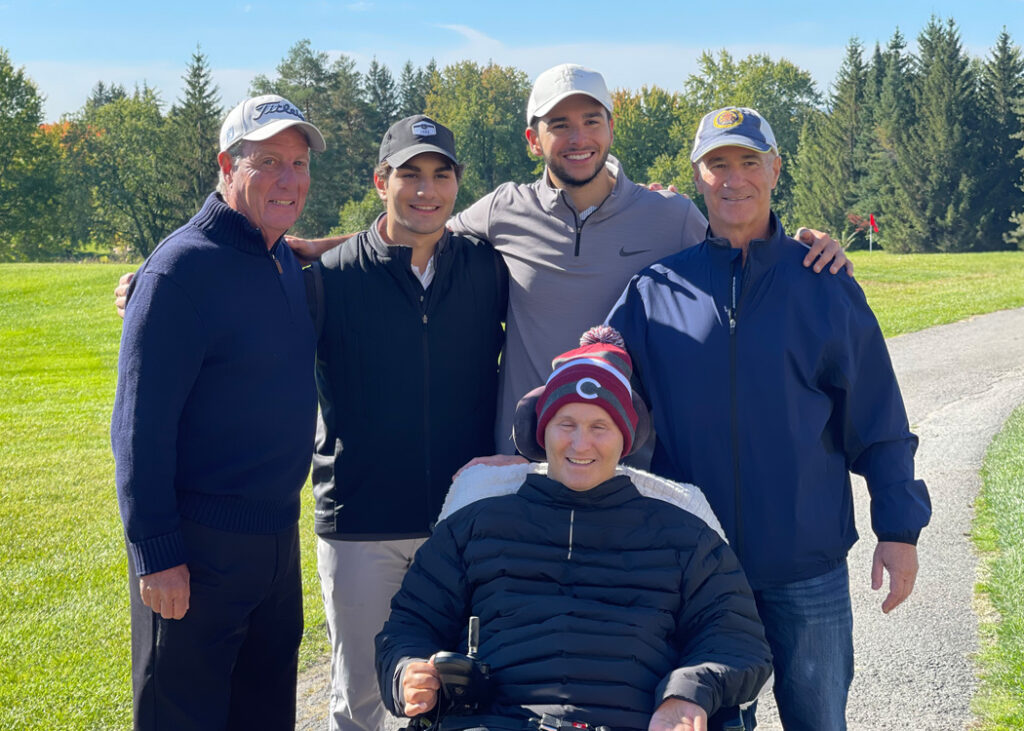
This dynamic duo, along with a team of supporters is once again rallying Canadians to come together to support T1D research by committing to pick up their clubs this summer and join the JDRF Golf Challenge.
From August 13-20, (and throughout the year) players from across the country and around the world are invited to tee off for T1D and take up the JDRF Golf Challenge to play a collective 11,000 holes of golf in support of the approximately 11,000 Canadians who will be diagnosed with T1D this year.
The challenge couldn’t be simpler. Whether you play a round (or several) of 18 holes, go marathon-style and play from dusk till dawn, hit the driving range or take the family to mini putt, any golfer of any skillset can play in support of accelerating T1D research.
JDRF had the chance to sit with both Steven and David to discuss the event they co-founded and their hopes for 2023.
JDRF: Tell us about the origins of the JDRF Golf Challenge
Steven: “Back in the early 80s, I got to know David through sport and mutual friends. I approached a friend to help me do a golf marathon to raise money for JDRF. Back then it was a much more labour intensive event, all the fundraising forms were by carbon copy forms, and we had to fill these out manually – whether someone wanted to sponsor us on a per hole basis or a flat amount we had to go back to them to collect. We chose a quiet day in September. The Garfinkle family came out, and that first year we raised around $3500.
The next year, I also got involved with JDRF as a President of the ‘Young Adults Club’. We were able to get the event up to around 5-6 golf courses. We had courses and players we didn’t know – one team even played 213 holes in one day by riding an ATV. Combined over the two years we raised around $80K.
But then, as it does – life got in the way and didn’t repeat the event again.”
JDRF: What brought you back to the event?
Steven: “40 some odd years later in 2022, I had it in my head that with all the social media/internet tools available we could do another golf marathon. We did well, but it was challenging because we got a lot of pushback from the golf courses. They didn’t want to support a singular event where members support one individual charity, or one that isn’t already supported by the golf course.
So, this year we changed the format, to play 18 holes, register and raise money. But we wanted to have the challenge – so the concept of the 11,000-hole challenge was built, so we would try to get as many holes played as possible in a week (and throughout the year) across the country. 11,000 representing the number of people who will be diagnosed with T1D this year.
The approach this year is good, by going province by province and opening it up it will make it easier for a course, they don’t have to lend their course or disrupt their course. It’s fine for someone to play their regular game as part of the event.”
JDRF: What are your goals for the 2023 JDRF Golf Challenge?
Steven: “Overall our goals are financial, but we want to see it [the event] grow, go to every province, and through social media get more and more people registered. $500,000 is the goal, but we want to see it grow and get a good buzz about it.
And of course, our ultimate goal is finding a cure for our family and friends, and all Canadians affected by T1D.”
David: “We’re trying to raise half a million dollars to fund research to find a cure.
T1D is not necessarily a well-known disease and we know this, it’s at the bottom of most people’s priorities, and we need to try and change that. We know that we’re competing in a world where everyone is asking for something. But many people love to play golf, and we should turn that love into something constructive to find a cure for T1D.”
Although much progress in T1D management has been made in the 40 years since Steven and David first held their golf fundraiser, David wishes more people understood the reality of living with the disease.
David: “It’s not easily treatable, you must have a disciplined lifestyle. The food labels aren’t always as accurate as you hope. The blood glucose swings can be quite dramatic. Even the difference between white and brown bread can cause a spike. And it can cause major complications. It’s a very challenging vacation-free disease. It’s not easy to live with.”
It’s for this reason that both David and Steven hope that when you tee off this summer, you’ll make the choice to support JDRF Canada when you do.
David: “You have the choice to do something or do nothing, and Steven and I have both made the choice to do something. To find a cure. Steven has no direct connection to T1D, and yet he has made this significant commitment to the cause. We’re only asking you to go out and play golf, but this time you’re doing it for charity. It’s a pretty simple concept that we’re hoping catches on. We want people to think ‘Hey, if my neighbour, colleague or friend can do it, so can I’. It doesn’t take much. You’re golfing anyway. Why not do it to benefit a charity.“
To register for the JDRF Golf Challenge, or to learn more about the fundraiser, please visit: www.jdrfgolfchallenge.ca
